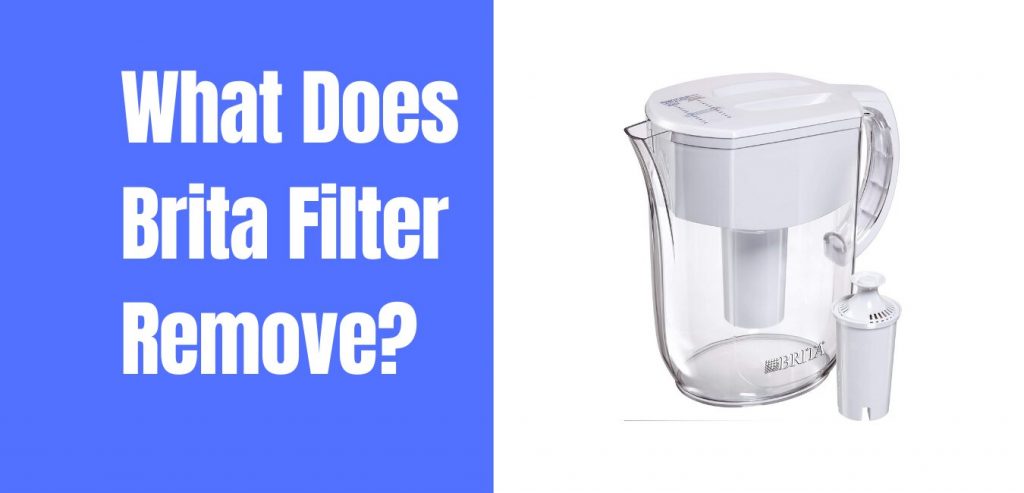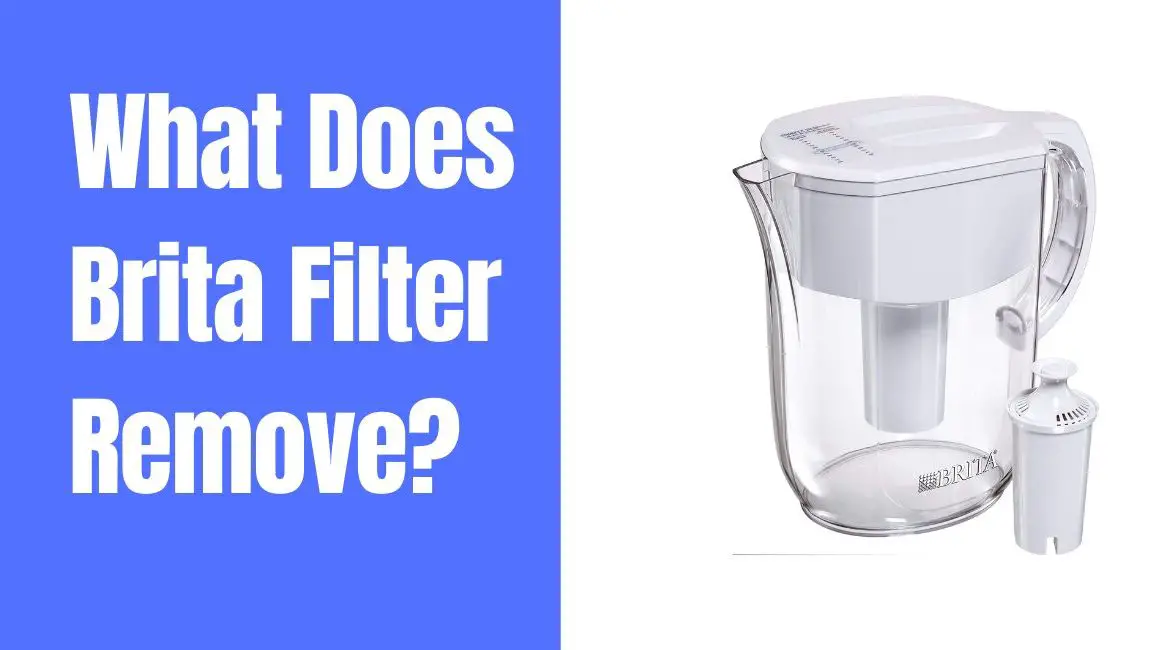Your options are extremely diversified when it comes to water filtration and health-related standards. While you can do with a cheap filter bought from the nearest supermarket, chances are it will never get the job done.
Some names stand out in the crowd and dominate the market – Brita is one of the most reputable options out there. There are lots of filters in its portfolio, but then, what does a Brita filter remove?
It is worth noting that Brita filters remove all kinds of contaminants. On the same note, there are more types of Brita filters and each of them is aimed at particular contaminants.
From this point of view, you need to become familiar with the pollutants in your water – run a test. Then, you need to determine the ideal type of filter for your needs. All in all, Brita water filter contaminants removed depend on your personal necessities.

Table of Contents
So, What Does a Brita Filter Remove?
|
How Brita water filters workBefore getting there, you must become familiar with the various types of filters. You can find standard filters or long-last filters, as well as stream, bottle, or faucet filters. While some of the technologies employed are identical in all filters, the difference is usually in the location and operating principle. For instance, a faucet water filter would not be suitable for a bottle water filter and vice versa.
The first filtration step removes particles of all kinds. Some filters use a mesh, while others rely on a few layers. The second step involves removing all the things that you cannot see, such as chlorine or lead. Carbon blocks are also quite common in Brita filters because they are handy at removing foul odors and tastes, which are often given by contaminants. Bottom line, every filter works in a different way and it depends on what you need.
Whether or not you have tested the quality of your water, you want to ensure the Brita filter you purchase can remove your common pollutants and as many other contaminants as possible. If you have already tested the water you use, make sure the filter you purchase can help you get rid of those things. The capability to remove even more contaminants will pay off in the long run, even if you do not have those pollutants at the moment.
If you have never tested the water you use, you want a filter that can remove as many contaminants as possible. Some people can barely taste chlorine – as for other pollutants, they have no idea about them because they cannot sense them. While testing water gives you a more appropriate result, it is not mandatory. A professional filter to remove everything will most likely help you get clean and clear water. |
List of Contaminants remove by Brita Filter
 Chlorine
Chlorine
Chlorine can be removed by all types of Brita filters. Even if you cannot actually smell or taste it, it is there. Most plants rely on it to clean water. The immediate effects of exposure include mild airway irritations, wheezing, cough, skin and eye irritations. The exposure may have more severe effects in the long run.
Lead
Lead is removed by faucet and long last Brita filters. In small amounts, the effects of lead are not noticeable. Heavier amounts may bring in all kinds of issues, especially in children. Too much lead can attack the brain and central nervous system. Behavioral disorders are also quite common. Some of the effects are permanent.
Mercury
Standard, long last, and faucet Brita filters can successfully remove mercury from your water. Normally, mercury is in your tap water in low amounts. The initial exposure will not do too much damage, but things can change over time. Lungs, kidneys, the immune, nervous and digestive systems are likely to be affected.
Cadmium
Cadmium is often overlooked by many water filter brands, but not Brita. While not always present in water, it can be overlooked in small amounts.
A heavier exposure can bring in reactions that replicate the flu. In the long run, such reactions can turn into lung and kidney affections, so you might want to tackle the exposure early.
Benzene
Benzene is often overlooked by plants when cleaning water. Small amounts of it will not bring in any harsh long-term effects, but regular exposure to this chemical can lower the number of red blood cells, which will inevitably lead to anemia. With time, it will affect the immune system and make you prone to further infections.
Asbestos
Some of the best Brita water filters will also remove asbestos. There is hype around asbestos because it is known to cause cancer. It is known to cause lung cancer when inhaled, but its effects are just as harsh when ingested.
Copper and zinc
Standard Brita filters are able to remove copper and zinc. While healthy in small amounts, the minerals can cause gastrointestinal issues and a few types of cancer if taken in large amounts.
Other contaminants
Some other contaminants that Brita filters are able to remove include:
The list can go further and it depends on the filter you get. Some of the best Brita water filters for sale can remove over 30 contaminants, while others will go up to over 50 contaminants.
Final words
So, what does a Brita filter remove? Pretty much every pollutant in your water. Tap water will not kill you overnight, but it may cause severe side effects in the long run.
It could take years or perhaps decades, depending on how polluted it is. Preventing these effects is now possible. Therefore many of brita’s customers love the quality of the product and it is definitely not a scam.
Choosing the best filter is a matter of personal needs – whether or not you test your water. As a general rule of thumb, the more contaminants you can get rid of, the better.
If you enjoy this article, Please read our clearly filtered pitcher review as well.


